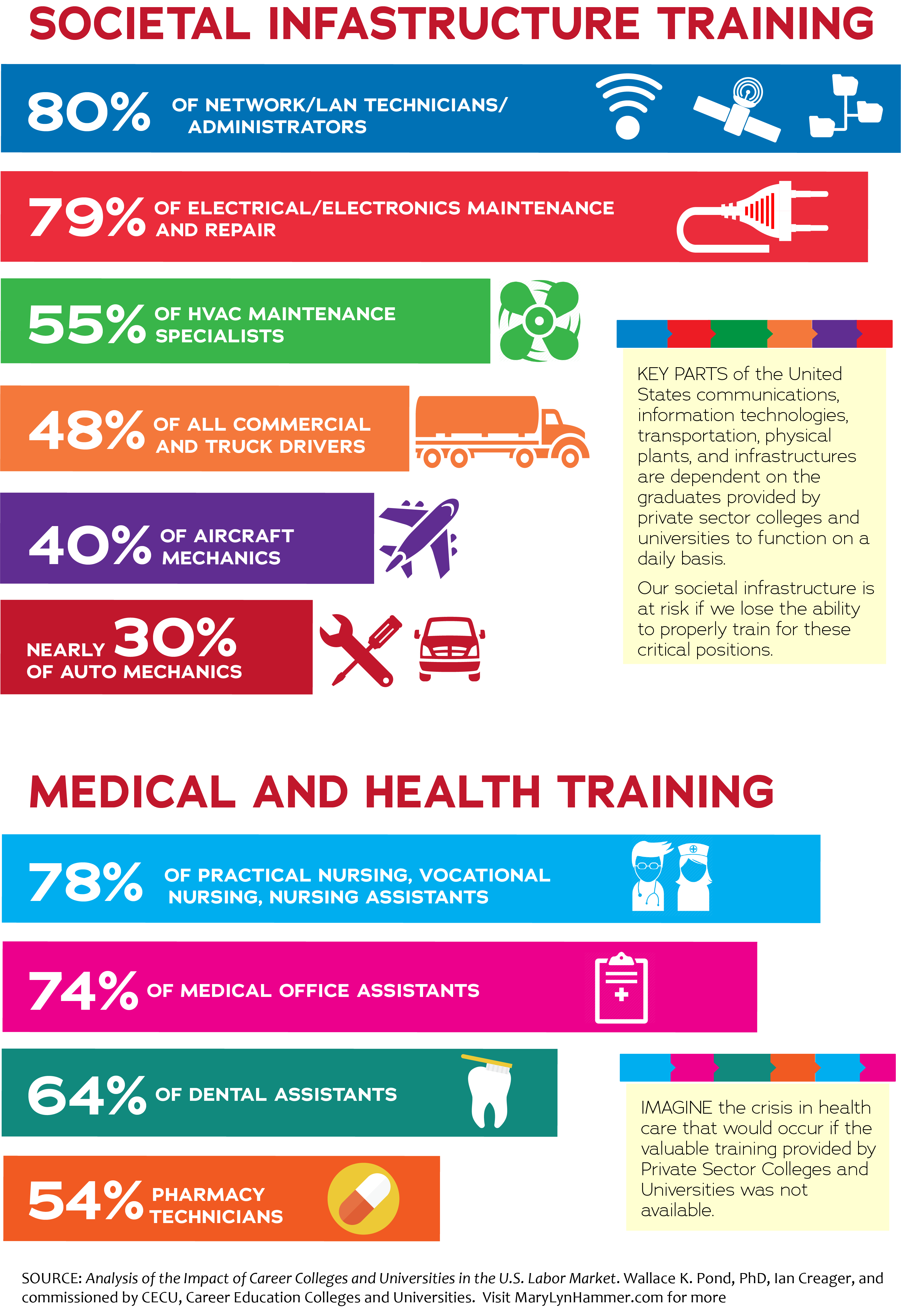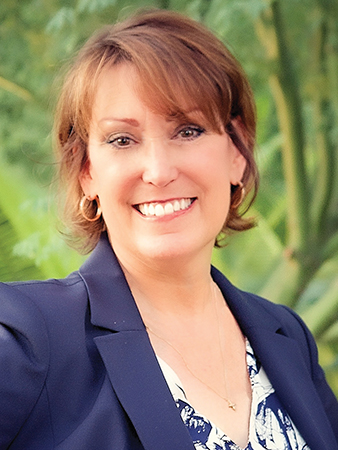
ED Admitting Misreporting and Errors in College Scorecard Data Is the Tip of the Iceberg
Phoenix, AZ
FROM THE DESK OF MARY LYN HAMMER
Senator Mike Enzi (R-WY), Chairman of the U.S. Senate Committee on the Budget, has recommended that Secretary of Education, Betsy DeVos, “…conduct a comprehensive audit of all student loan-related data maintained by the Department—whether used for budgetary, regulatory, public information or other purposes—and take steps to ensure the integrity of the data going forward…” This comes after the U.S. Department of Education (ED) admitted in January 2017, it published inaccurate information about repayment rates on its College Scorecard website. Although ED has downplayed the impact of the coding errors, this pattern of inaccurate reporting and mismanaged data is not new—it is the tip of the iceberg.
An analysis by Mary Lyn Hammer, a student loan and cohort default rate (CDR) industry expert, comparing many ED databases to its press releases and briefings shows a pattern of misreporting and mismanagement which began in 2009. Ms. Hammer began questioning ED in 2010 through written and oral public testimony at ED hearings after auditing gainful employment (GE) data and finding it was grossly inaccurate. For example; the annual payments for proprietary school programs were reported as much as 1008% higher than the correct calculation. This drastically affected the debt-to-earnings ratios for these programs and gave the incorrect impression that most proprietary school programs left students with unaffordable debt burdens. When the correct repayment schedules were applied to the 193 proprietary programs ED marked as failing, only 6 programs actually failed. At first, Hammer believed this to be a result of coding errors for new regulations—not unlike the coding errors which resulted in the considerable misrepresentation of the borrower repayment rates. However, unlike the recent admission, ED never rescinded the inaccurate and misleading information. The four major points of ED discrepancies include:
Point #1 Incorrect Student Loan Default Statuses ED’s mismanagement of student loan servicing during loan transfers resulted in the incorrect labeling of hundreds of thousands of borrowers as in default when current status arrangements had been approved. As a result, taxpayers are paying unnecessary duplicate and/or high collection servicing fees and borrowers are suffering severe consequences of default and poor credit ratings.
Point #2 Unlawful CDR Adjustments and Inaccurate Sector-level CDR Reporting ED did not have the legal authority or legislative approval to use the methodologies it employed to adjust CDRs beginning in 2014. It did so in a manner that forced a number of for-profit schools to close and gave preferential treatment to certain schools. ED has published information with extensive errors that has given false impressions of sector-level performance that consistently improved default statistics for the public sector while defaming default statistics for the proprietary sector. This inaccurate reporting led to a tremendous financial burden for taxpayers and has devalued certifications and degrees for a tremendous number of graduates.
Point #3 GE Reporting and Program Problems ED’s GE has been plagued by missing data, inaccurate calculations, and misreporting. ED’s “PAYE” and “REPAYE” repayment terms set schools up for failing GE requirements with unrealistically low payments that increase debt burdens for students.
Point #4 College Scorecard Fails to Accurately Report Additional College Scorecard errors have been identified by Ms. Hammer. Students, parents and lawmakers used the College Scorecard data to make decisions about school choices and these misperceptions about school performance fueled by ED’s inaccurate reporting has grown, forcing many good schools to close, and limiting educational training choices for students, especially the most vulnerable of all—at-risk students.
In addition to Ms. Hammer’s analysis, the Career Education Colleges and Universities published An Analysis of the Impact of Career Colleges and Universities on the U.S. Labor Market in November 2016 containing extensive information, based on ED and Bureau of Labor Statistics data, of the importance training, critical to the U.S. labor market, infrastructure and economy, proved by for-profit schools. The report states: “Over 1 in 4 credentials awarded in the health and related professions fields come from private sector colleges and universities. As it relates to societal infrastructure, 80% of network/LAN technicians/administrators, 42% of electrical and electronic engineering technicians, 55% of HVAC engineering technicians, nearly half of all commercial and truck drivers, 40% of aircraft mechanics, and nearly 30% of auto and diesel mechanics are trained in career colleges and universities.”
As media begins to focus on investigating or questioning ED, Ms. Hammer desires to make her evidence and findings publicly available so that fair and equitable laws and regulations are developed to ensure schools stay in business and provide quality education and training for all students at all institutions. Ms. Hammer is available as a resource to provide more specifics on these important subjects.

Learn More In This FREE White Paper Detailing ED’s Errors and Misreporting
At best, numerous and repeated errors in ED’s reports are evidence of gross negligence—when the data is properly audited, we learn that MANY excellent, high-performing colleges in the for-profit sector exist. At worst, ED’s misreporting and erroneous data is evidence of an agenda that has nothing to do with quality education. While some schools in ALL sectors should come under higher scrutiny, most for-profit institutions provide quality education options, especially for at-risk students, in critical fields of study vital to our infrastructure, health and wellbeing.
While some schools in ALL sectors should come under higher scrutiny, most for-profit institutions provide quality education options, especially for at-risk students, in critical fields of study vital to our infrastructure, health and wellbeing. For-profits provide needed job and vocational training that other higher education sectors are not prepared or well-suited to provide.
The College Scorecard errors recently admitted to by ED are just the tip of the iceberg. To resolve these issues, we must eliminate unreasonable targeted regulations; provide Americans with accurate information about true college costs and performance; and develop fair and equitable laws and regulations that hold ALL schools equally accountable for quality education and training. We must NOW address these critical issues to ensure we are prepared for future job growth.
Read the

Mary Lyn Hammer is an expert resource for journalists who need reliable answers to tough questions about how the U.S. government handles student loans, cohort default rates, higher education loan regulations, and the topics of financial literacy and education legislation.
For more information, to obtain a review copy of Injustice for All, schedule an interview, and/or to book Ms. Hammer to speak to your group, please call 480.222.4314 or click here to email your request.
